#CarRentalDataScraping
Explore tagged Tumblr posts
Text
Powering Your Travel Business: Leveraging Data Scraping for 2025 and Beyond
This blog post delves into how data scraping, specifically in critical sectors like urban car rentals, cruise bookings, and hotels, is revolutionizing how travel companies operate, innovate, and thrive in 2025.
Read More :- https://travelscrape.wordpress.com/2025/06/19/powering-your-travel-business-leveraging-data-scraping-for-2025-and-beyond/
#CarRentalDataScraping#ScrapingCarRentalPrices#CarRentalDataIntelligence#CruiseFerriesDataScraping#GlobalCruiseRouteDataset#CruiseFerriesDataIntelligence#HotelReviewData#HotelDataScraping#HotelPriceMonitoring#AgodaHotelDataScraping#ExtractHotelPriceDataFromAgoda
0 notes
Text
Car Rental Data Scraping Services | Scrape Car Rental Data from Uber, Ola, CarRentals, etc.
'Actowiz Solutions specializes in offering Car Rental Data Scraping Services across the US, UK, and Australia for online platforms like Uber, Ola, CarRentals, etc.
KNOW MORE: https://www.actowizsolutions.com/car-rental-data-scraping-services.php
#CarRentalDataScrapingServices#Scrape Car Rental Data#WebScrapingCarRentalData#CarRentalDataScraper#Car Rental DataCollection#ExtractCarRentalData
0 notes
Photo

Get Frequent #Data of #used_car from carfax.com
Aggregating the #data of the used car from multiple classified sites has so many different use cases, among which using it to build your used car portal is the most beneficial one.
Visit: https://hirinfotech.com/business-directory-scraping/
#usedcardata#crafax#newandusedcar#CarDataScraping#CarRentalDataScraping#VehicleDataScraping#RentedCar#USA#UK#France
0 notes
Text
Powering Your Travel Business: Leveraging Data Scraping for 2025 and Beyond
The travel industry is a dynamic landscape, constantly reshaped by emerging trends, shifting consumer behaviors, and technological advancements. In this hyper-competitive environment, access to real-time, comprehensive data is no longer a luxury but a necessity for businesses aiming to stay ahead. This blog post delves into how data scraping, specifically in critical sectors like urban car rentals, cruise bookings, and hotels, is revolutionizing how travel companies operate, innovate, and thrive in 2025.
1. Urban Travel Car Rental Trends: Navigating the Modern Cityscape
Introduction: Urban travel, with its emphasis on efficiency and flexibility, is seeing a significant evolution in car rental preferences. As cities grow smarter and travelers seek seamless experiences, understanding these trends is paramount for car rental companies to optimize their services and fleet.
Discussion: The urban car rental landscape in 2025 is marked by several key trends. We're seeing a surge in eco-friendly vehicle rentals, with a growing demand for electric vehicle (EV) rentals and hybrid car options for city exploration and short trips. The rise of the sharing economy has also fueled the popularity of hourly car rentals and on-demand car-sharing services, catering to spontaneous travel needs. Furthermore, subscription-based car rental models are gaining traction, offering greater flexibility for frequent urban travelers. Companies are also investing heavily in contactless car rental solutions and mobile app-based booking to enhance user convenience.
Internal Link: To dive deeper into how data can inform your car rental strategy, explore our insights on Car Rental Data Scraping.
Summary: Staying attuned to these urban car rental trends, from sustainable choices to on-demand access, is crucial for businesses looking to capture market share and meet the evolving demands of modern city travelers.
2. Car Rental Data Scraping Trends for 2025: Unlocking Competitive Intelligence
Introduction: For car rental businesses, accurate and up-to-date competitive data is the bedrock of effective pricing strategies and market positioning. Data scraping has emerged as the most efficient way to gather this vital information.
Discussion: In 2025, car rental data scraping is becoming more sophisticated. Key trends include the demand for real-time pricing data scraping to enable dynamic pricing adjustments, helping businesses respond instantly to market fluctuations. Fleet availability scraping is critical for optimizing inventory and preventing overbooking or underutilization. We're also seeing an increased focus on competitor pricing analysis across various vehicle segments and locations, leveraging tools for Scraping Car Rental Prices. The ability to scrape car rental promotions and discount codes allows companies to benchmark their offers and create more compelling deals. Moreover, insights from customer review scraping provide valuable feedback on service quality and areas for improvement. Advanced proxy management and anti-bot detection bypass techniques are essential for successful and sustained data collection.
Internal Link: Learn more about the specifics of extracting valuable data with our guide on Car Rental Data Intelligence.
Summary: The future of car rental competitiveness lies in leveraging advanced data scraping techniques to gain a comprehensive understanding of the market and individual customer preferences.
3. How Travel Scraping Boosts Cruise Sales: Riding the Waves of Opportunity
Introduction: The cruise industry is experiencing a resurgence, and travel agencies and cruise lines are constantly seeking innovative ways to attract passengers. Travel scraping offers a powerful tool to identify opportunities and personalize offerings, significantly boosting cruise sales.
Discussion: Travel data scraping plays a pivotal role in optimizing cruise sales by providing actionable insights. By scraping cruise pricing data, agencies can offer competitive deals and identify lucrative price drops. Itinerary scraping allows for the analysis of popular routes and destinations, informing package development. Understanding cabin availability trends helps in managing inventory and promoting specific cabin types. Furthermore, scraping cruise line promotions and special offers enables targeted marketing campaigns. The ability to analyze customer reviews on cruise forums provides invaluable feedback on onboard experiences and service quality, informing improvements and marketing messages. Personalized cruise recommendations based on scraped user preferences are also driving higher conversion rates.
Internal Link: Discover how to effectively leverage this technology with our overview of Cruise Ferries Data Scraping.
Summary: Travel scraping empowers cruise businesses to refine their strategies, from pricing to personalization, leading to a significant uplift in sales and customer satisfaction.
4. Insights on Cruise Booking Data Scraping for 2025: Navigating the Digital Seas
Introduction: As the cruise industry embraces digital transformation, the ability to collect and analyze granular booking data is becoming increasingly vital for strategic decision-making and forecasting.
Discussion: Cruise booking data scraping in 2025 focuses on delivering granular insights. This includes real-time availability data for specific cabins and sailing dates, enabling dynamic pricing and capacity management. Scraping booking trends by origin country and demographic information helps cruise lines tailor marketing efforts and develop region-specific packages. Analyzing booking lead times provides crucial data for forecasting demand. The extraction of last-minute cruise deals and early bird offers is essential for competitive positioning. Furthermore, insights derived from competitor cruise pricing and package inclusions allow companies to refine their offerings and stay ahead in the market. The integration of AI for predictive analytics on scraped data is a significant trend for 2025, enabling more accurate demand forecasting.
Internal Link: For a deeper dive into the specifics, check out our insights on Global Cruise Route Dataset.
Summary: Granular cruise booking data, meticulously scraped and analyzed, is the compass guiding cruise companies toward profitable strategies in 2025.
5. The Importance of Cruise Ferries Data Intelligence: Connecting Coastal Communities
Introduction: Beyond traditional ocean cruises, the often-overlooked segment of cruise ferries plays a critical role in connecting coastal regions and facilitating travel. Data intelligence for this sector is crucial for optimizing operations and meeting regional demand.
Discussion: Cruise ferries data intelligence is vital for optimizing routes, pricing, and resource allocation. This involves scraping ferry schedules and routes, passenger capacity data, and vehicle capacity information. Analyzing peak travel times and seasonal demand helps in dynamic pricing and resource deployment. Insights from competitor ferry pricing and service offerings are crucial for maintaining a competitive edge. Furthermore, understanding passenger demographics and popular embarkation/disembarkation points can inform marketing strategies and infrastructure development. The rise of eco-friendly ferry initiatives and sustainable travel preferences also necessitates data on these trends to cater to evolving consumer values.
Internal Link: Explore how comprehensive data can power your maritime travel business with our focus on Cruise Ferries Data Intelligence.
Summary: Neglecting cruise ferries data intelligence means missing out on significant opportunities in a vital segment of the maritime travel industry.
6. Hotel Data Scraping Services Overview: The Foundation of Hospitality Insights
Introduction: The highly competitive hotel industry thrives on data-driven decision-making. Hotel data scraping services provide the essential information needed for strategic pricing, market analysis, and enhancing guest experiences.
Discussion: Hotel data scraping services encompass a wide range of data extraction capabilities, providing a holistic view of the hospitality landscape. This includes scraping hotel room rates across various platforms and room types, crucial for dynamic pricing and revenue management. Availability data scraping is essential for optimizing occupancy rates. Comprehensive competitor analysis data covers everything from competitor pricing to amenities offered and special packages. Scraping Hotel Review Data and ratings provides invaluable insights into guest sentiment and operational strengths/weaknesses. Moreover, location data scraping helps identify market hotspots and underserved areas. The trend in 2025 is towards highly customizable and scalable scraping solutions that deliver clean, structured data for seamless integration into business intelligence systems.
Internal Link: Get a deeper understanding of what we offer with our comprehensive guide to Hotel Data Scraping.
Summary: Hotel data scraping services are the backbone of smart hospitality, enabling businesses to make informed decisions that drive profitability and guest satisfaction.
7. Analyzing Hotel Room Price Trends Dataset: Mastering Revenue Management
Introduction: Understanding the ebb and flow of hotel room prices is fundamental to effective revenue management. Analyzing comprehensive datasets derived from scraping provides a clear picture of market dynamics and future pricing opportunities.
Discussion: When analyzing hotel room price trends datasets, several key factors come into play. This includes identifying seasonal pricing variations, event-driven price surges, and weekday vs. weekend pricing patterns. The dataset allows for historical pricing analysis to forecast future trends and optimize pricing strategies. Furthermore, competitor price benchmarking becomes highly accurate, enabling swift adjustments to maintain competitiveness. Insights into discounting strategies and promotional effectiveness can be gleaned from analyzing pricing changes tied to specific offers. The integration of predictive analytics and machine learning algorithms with these datasets is a major trend for 2025, enabling highly sophisticated demand forecasting and dynamic pricing optimization.
Internal Link: Learn more about how to leverage this critical information by exploring our services for Hotel Price Monitoring.
Summary: Deep analysis of hotel room price trends datasets is the key to unlocking maximum revenue potential and staying competitive in the volatile hospitality market.
8. A Guide to Scraping Agoda Hotel Data Without Coding: Empowering Non-Technical Users
Introduction: For many in the travel industry, the thought of data scraping conjures images of complex code. However, the rise of user-friendly tools is making Agoda hotel data scraping accessible to even non-technical users, democratizing access to valuable market intelligence.
Discussion: Scraping Agoda hotel data without coding is increasingly feasible with the advent of intuitive web scraping tools and platforms. These no-code scraping tools often feature visual interfaces, click-and-point selectors, and pre-built templates for popular travel sites like Agoda. Users can easily extract hotel names, room types, prices, ratings, reviews, amenities, and availability without writing a single line of code. Key features to look for include proxy integration for avoiding IP blocks, scheduled scraping for continuous data updates, and data export options in user-friendly formats like CSV or Excel. The trend for 2025 is towards even more intelligent, AI-powered no-code scrapers that can automatically identify and extract relevant data fields.
Internal Link: Discover how straightforward it can be to access this valuable data with our insights on Agoda Hotel Data Scraping.
Summary: Empowering non-technical users to scrape Agoda hotel data opens up a world of possibilities for market research, competitive analysis, and informed decision-making.
9. Techniques for Effective Agoda Hotel Data Scraping: Advanced Strategies for Precision
Introduction: While no-code tools are gaining popularity, understanding advanced techniques for Agoda hotel data scraping ensures maximum efficiency, accuracy, and resilience against website changes.
Discussion: Effective Agoda hotel data scraping often involves a combination of techniques to overcome challenges like dynamic content loading, CAPTCHAs, and IP blocking. Key techniques include utilizing rotating proxies to distribute requests and avoid detection, implementing headless browser automation to render JavaScript-heavy pages accurately, and employing smart parsing strategies to extract specific data fields reliably. API integration (where available) offers a more stable and efficient alternative. Furthermore, structured data output in formats like JSON or XML is crucial for seamless integration into databases and analytics platforms. Error handling and retry mechanisms are essential for robust scraping pipelines, ensuring data continuity even when encountering temporary website issues. For 2025, the focus is on integrating machine learning for intelligent data extraction and anti-bot bypassing.
Internal Link: Delve into the technical aspects and robust solutions with our insights on Extract Hotel Price Data from Agoda.
Summary: Mastering advanced Agoda hotel data scraping techniques ensures a consistent flow of high-quality data, providing a significant competitive advantage in the hospitality sector.
The travel industry of 2025 is unequivocally data-driven. From understanding urban travel preferences to mastering dynamic pricing for hotels and cruises, data scraping is the indispensable tool for businesses seeking to innovate, optimize, and grow. By embracing these technologies and leveraging the insights they provide, your travel business can navigate the complexities of the market with confidence and precision.
Ready to unlock the full potential of travel data for your business? Explore more resources and services on Travelscrape.com today!
#CarRentalDataScraping#ScrapingCarRentalPrices#CarRentalDataIntelligence#CruiseFerriesDataScraping#GlobalCruiseRouteDataset#CruiseFerriesDataIntelligence#HotelReviewData#HotelDataScraping#HotelPriceMonitoring#AgodaHotelDataScraping#ExtractHotelPriceDataFromAgoda
0 notes
Text

Improve Urban Travel With Car Rental Market Trends Scraping
Understanding Car Rental Market Trends Scraping is crucial for city planners to design efficient, sustainable, and user-centric urban mobility solutions.
Read More :- https://www.travelscrape.com/urban-travel-car-rental-trends.php
#CarRentalMarketTrendsScraping#CarRentalLocationDataset#CarRentalDataScraping#CarRentalDataIntelligence#TravelAggregators#TravelIndustryWebScraping
0 notes
Text
Improve Urban Travel With Car Rental Market Trends Scraping
Introduction
Understanding Car Rental Market Trends Scraping is crucial for city planners to design efficient, sustainable, and user-centric urban mobility solutions. As cities worldwide grapple with increasing population density, traffic congestion, and environmental concerns, the need for data-driven urban planning has never been more critical. Modern urban planners are turning to innovative data sources to make informed decisions about transportation infrastructure, and car rental data has emerged as a goldmine of insights.
Integrating comprehensive rental car analytics into urban planning processes represents a paradigm shift from traditional planning methods to evidence-based decision-making. By leveraging Real-Time Rental Car Data, cities can better understand travel patterns, identify transportation gaps, and optimize their mobility ecosystems to serve residents and visitors.
The Evolution of Urban Transportation Planning
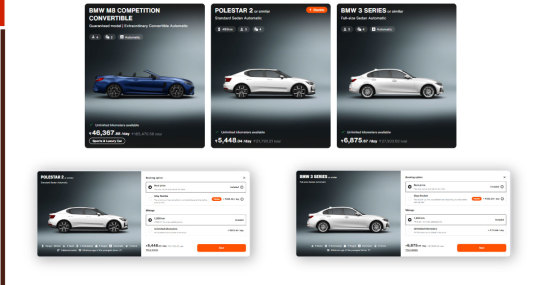
Traditional urban planning relied heavily on historical traffic counts, surveys, and demographic projections. However, these methods often fail to capture the dynamic nature of modern urban mobility. Today's Car Rental Market Trends 2025 reveal a significant shift toward flexible, on-demand transportation solutions that complement public transit systems.
Key Challenges in Modern Urban Planning:
Traffic congestion costing cities billions in lost productivity
Environmental impact of private vehicle ownership
Inadequate public transportation coverage in suburban areas
Seasonal fluctuations in transportation demand
Integration of new mobility services with existing infrastructure
Budget constraints for transportation infrastructure investments
The emergence of Smart City Travel initiatives has highlighted the importance of comprehensive data collection and analysis. Car Rental Demand Forecasting provides planners with predictive insights that enable proactive infrastructure development rather than reactive solutions.
Understanding Car Rental Data as Urban Intelligence
Car Hire Data represents a rich source of urban mobility intelligence that reveals patterns invisible to traditional planning methods. This data encompasses pickup and drop-off locations, rental duration, vehicle types, seasonal variations, and pricing dynamics. When properly analyzed, this information provides unprecedented insights into urban transportation behaviors.
Components of Rental Car Analytics:
Geographic distribution of rental activities
Temporal patterns, including hourly, daily, and seasonal trends
Vehicle type preferences across different city zones
Duration patterns indicating trip purposes
Price elasticity and demand correlation
Integration with other transportation modes
Urban Transportation Analytics from rental car data helps planners understand how residents and visitors navigate cities. This understanding is particularly valuable for identifying underserved areas where public transportation may be inadequate or where additional mobility options could reduce private car dependency.
Real-Time Data Collection and Processing
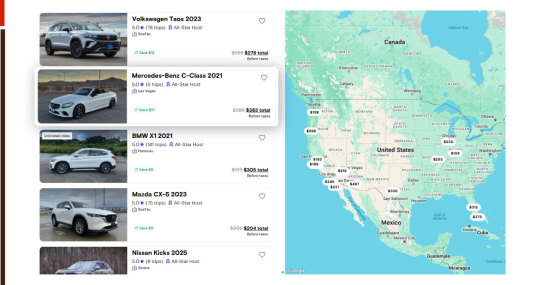
The power of Car Rental Market Trends Scraping lies in its ability to provide real-time insights into urban mobility patterns. Unlike static demographic data or infrequent traffic surveys, rental car data monitors transportation demand across various city zones and periods.
Benefits of Real-Time Analysis:
Immediate identification of emerging transportation patterns
Rapid response to special events or infrastructure changes
Dynamic adjustment of public transportation schedules
Optimization of traffic flow management systems
Emergency response planning and evacuation route optimization
Travel Demand Data collected through systematic scraping enables planners to move beyond historical assumptions and base decisions on current user behavior. This approach is particularly valuable in rapidly changing urban environments where traditional planning cycles may lag behind actual needs.
Forecasting and Predictive Analytics
Car Rental Demand Forecasting represents a critical component of modern urban planning. By analyzing historical patterns, seasonal variations, and external factors, planners can anticipate future transportation needs and plan infrastructure accordingly.
Forecasting Applications:
Predicting transportation demand for new residential developments
Planning for seasonal tourism impacts on local transportation
Anticipating the effects of new business districts on mobility patterns
Evaluating the potential success of new public transit routes
Assessing the impact of significant events on city-wide transportation
Vehicle Availability Insights help planners understand where people want to travel and where transportation options are currently limited. This information is invaluable for identifying priority areas for public transit expansion or mobility service enhancement.
Price Dynamics and Economic Planning
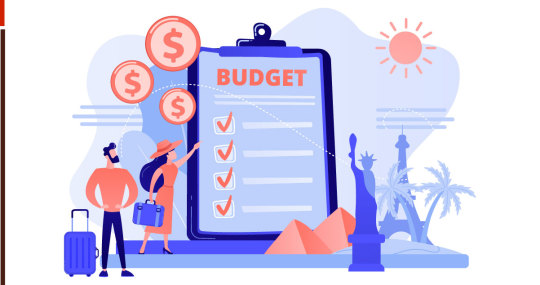
Car Rental Price Trends Dataset analysis provides urban planners with economic insights that complement traditional transportation metrics. Price elasticity data reveals how sensitive transportation demand is to cost factors, informing decisions about public transit pricing and subsidy programs.
Economic Considerations:
Correlation between rental prices and public transit usage
Impact of pricing on transportation equity across income levels
Seasonal pricing patterns affecting tourism and the local economy
Competition dynamics between different mobility service providers
Cost-effectiveness analysis of various transportation solutions
Understanding these economic dynamics helps planners develop more equitable and sustainable transportation policies that serve all segments of the urban population.
Geographic Intelligence and Location Analytics
Car Rental Location Dataset analysis reveals spatial patterns crucial for urban planning decisions. This geographic intelligence helps planners understand how different city zones function as transportation hubs and identifies opportunities for infrastructure improvement.
Location-Based Insights:
Identification of transportation demand hotspots
Analysis of inter-zone connectivity patterns
Assessment of airport and transit station accessibility
Evaluation of commercial district transportation needs
Planning for equitable distribution of mobility services
Mobility Trends analysis based on location data helps planners ensure that transportation infrastructure development aligns with actual usage patterns rather than theoretical models.
Integration with Smart City Initiatives
Modern Smart City Travel initiatives rely heavily on data integration from multiple sources. Car Rental Data Scraping provides a crucial piece of the urban mobility puzzle, complementing data from public transit systems, ride-sharing services, and traffic monitoring systems.
Smart City Benefits:
Comprehensive urban mobility dashboard development
Integrated transportation management systems
Real-time optimization of traffic flow
Coordinated emergency response planning
Evidence-based policy development and evaluation
Integrating rental car data with other urban data sources creates a more complete picture of city-wide transportation patterns, enabling more effective planning and management decisions.
Environmental Impact Assessment
Car Rental Data Intelligence contributes significantly to environmental planning and sustainability initiatives. By understanding rental patterns, planners can assess the environmental impact of different transportation modes and develop strategies to reduce overall carbon emissions.
Environmental Applications:
Calculating the carbon footprint of rental car usage
Identifying opportunities for electric vehicle infrastructure
Assessing the effectiveness of car-sharing programs
Planning for reduced private vehicle ownership
Evaluating the environmental benefits of improved public transit
This environmental focus aligns with global sustainability goals and helps cities develop more environmentally responsible transportation systems.
Implementation Best Practices
Successful implementation of rental car data in urban planning requires careful consideration of data quality, privacy concerns, and integration with existing planning processes. Cities should develop clear data collection, analysis, and application protocols to ensure maximum benefit from these insights.
Implementation Considerations:
Establishing data governance frameworks
Ensuring compliance with privacy regulations
Training planning staff on data interpretation
Developing standardized reporting procedures
Creating feedback loops for continuous improvement
The most successful implementations involve collaboration between data providers, urban planners, and city management to ensure that insights translate into effective policy and infrastructure decisions.
Future Trends and Opportunities

The future of urban planning will increasingly rely on real-time data sources like rental car analytics. As cities become more complex and dynamic, the need for responsive, data-driven planning approaches will continue to grow. Car Rental Market Trends Scraping will be increasingly important in creating more efficient, sustainable, and livable urban environments.
Emerging technologies such as artificial intelligence and machine learning will further enhance the value of rental car data by enabling more sophisticated pattern recognition and predictive capabilities. Cities that embrace these technologies today will be better positioned to address tomorrow's urban challenges.
How Travel Scrape Can Help You?
We specialize in comprehensive Car Rental Market Trends Scraping solutions that provide urban planners with the data intelligence needed for more innovative city development. Our advanced scraping technologies and analytical capabilities transform raw rental car data into actionable urban planning insights.
Our Services Include:
Real-time data collection from major car rental platforms and aggregators.
Comprehensive analytics dashboards for urban transportation planning.
Custom reporting solutions tailored to specific city planning needs.
Predictive modeling services for transportation demand forecasting.
Geographic visualization tools for spatial analysis and planning.
Integration support for existing city planning and management systems.
Data quality assurance ensures the accuracy and reliability of collected information.
Compliance management for data collection and usage regulations.
Key Advantages:
Scalable solutions are adaptable to cities of any size.
Cost-effective data collection compared to traditional survey methods.
Continuous monitoring capabilities for ongoing planning support.
Expert consultation services for data interpretation and application.
Flexible delivery formats are compatible with various planning software systems.
Our team of data scientists and urban planning experts ensures that the collected data is comprehensive, relevant, and actionable for your specific planning objectives.
Conclusion
In the evolving urban mobility landscape, relying on intuition or historical patterns alone is no longer enough. With Car Rental Market Trends Scraping, cities gain the power to build more innovative, more efficient transportation frameworks that evolve with their citizens’ needs.
Whether you're a city planner, researcher, or transport strategist, We empower you with access to comprehensive Travel Industry Web Scraping tools and scalable data platforms designed for the age of mobility intelligence.
Contact Travel Scrape today to learn how we can help you compete smarter, design better, and prepare for the next generation of Travel Aggregators and urban transportation leaders.
Read More :- https://www.travelscrape.com/urban-travel-car-rental-trends.php
#CarRentalMarketTrendsScraping#CarRentalLocationDataset#CarRentalDataScraping#CarRentalDataIntelligence#TravelAggregators#TravelIndustryWebScraping
0 notes
Text
Improve Urban Travel With Car Rental Market Trends Scraping
Understanding Car Rental Market Trends Scraping is crucial for city planners to design efficient, sustainable, and user-centric urban mobility solutions.
Read More :- https://www.travelscrape.com/urban-travel-car-rental-trends.php
#CarRentalMarketTrendsScraping#CarRentalLocationDataset#CarRentalDataScraping#CarRentalDataIntelligence#TravelAggregators#TravelIndustryWebScraping
0 notes
Text

Electric Vehicle Dealership Data Scraping And Geo Analysis
Analyze dealership distribution patterns and identify emerging EV hubs with Electric Vehicle Dealership Data Scraping, driving location-based insights.
Read More :- https://www.travelscrape.com/ev-dealer-data-insights.php
#ElectricVehicleDealershipDataScraping#WebScrapingForCarDealership#CarRentalDataIntelligence#CarRentalPriceTrendsDataset#CarRentalLocationDataset#CarRentalDataScraping#TravelIndustryWebScraping#TravelAggregators
0 notes
Text
Electric Vehicle Dealership Data Scraping And Geo Analysis
Introduction
The Electric Vehicle Dealership Data Scraping landscape presents critical decisions for businesses seeking comprehensive automotive intelligence. This comprehensive analysis examines the strategic considerations between traditional location data integrations and advanced web scraping methodologies for Electric Vehicle Dealership Locations acquisition. Based on extensive research across diverse automotive platforms and dealership mapping scenarios, this report provides actionable insights for organizations evaluating scalable automotive data extraction solutions. The objective is to guide automotive companies, dealership networks, and data-driven businesses toward optimal data collection strategies that balance performance, cost-effectiveness, and operational flexibility. Modern automotive businesses require sophisticated approaches to location intelligence, with both Web Scraping For Car Dealership Information methodologies offering distinct advantages depending on specific use cases.
Shifting Paradigms in Automotive Location Data Collection Methods
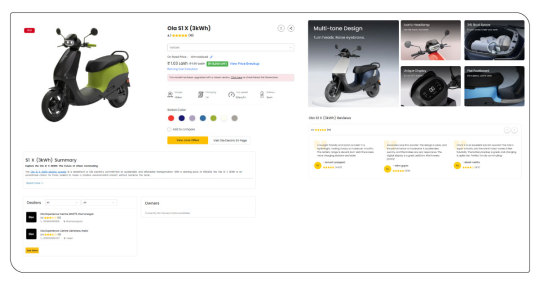
The landscape of automotive location data collection has evolved significantly with the emergence of sophisticated EV Dealership Data Scraping solutions. The primary drivers shaping this evolution include the increasing demand for real-time dealership information, the growing complexity of automotive platforms, and the need for scalable data infrastructure to handle massive volumes of location-related content.
Dealership Location Intelligence services have become increasingly sophisticated, allowing businesses to extract comprehensive datasets from multiple automotive sources simultaneously. These services provide granular access to dealer inventory information, location coordinates, service availability, and promotional content across various Tesla Dealership Locations platforms.
Meanwhile, traditional data-based solutions offer structured access to automotive location data through official channels, providing more reliable and consistent dealership information streams. Integrating machine learning and artificial intelligence has enhanced both approaches, enabling more intelligent data extraction and processing capabilities that support scalable automotive data extraction requirements.
Methodology and Scope of Location Analysis
The data for this report was collected through comprehensive testing of traditional and web scraping approaches across 100+ automotive dealership platforms nationwide. By systematically evaluating location data collection methods, we analyzed performance metrics, cost structures, implementation complexity, and data quality across major dealership networks, including Ford, GM, BMW, and specialized Electric Car Dealerships By State.
We evaluated both methods across key parameters—data freshness, extraction speed, scalability, and maintenance. Our custom automotive data solutions framework also considered location accuracy, update frequency, cost-efficiency, and technical complexity to ensure a well-rounded comparison.
Key Factors Influencing Location Data Collection Strategy Selection
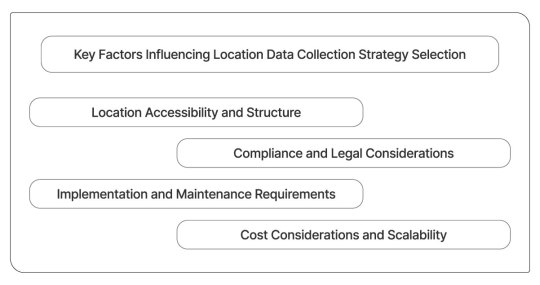
Understanding these factors is essential for making informed decisions about Real-Time EV Dealership Analytics strategies.
● Location Accessibility and Structure
Traditional methods provide structured, officially supported dealership data access with predefined formats and documentation. Implementing a method to Scrape Automotive Dealer Networks offers the flexibility to extract any publicly available location information but requires continuous adaptation to website changes and updates.
● Implementation and Maintenance Requirements
Traditional integration typically involves straightforward implementation with official documentation and support channels. Web scraping solutions require technical expertise and ongoing maintenance to handle website modifications, anti-scraping measures, and location data structure changes.
● Cost Considerations and Scalability
While traditional methods often involve usage-based pricing models, web scraping may appear cost-effective initially but can incur significant maintenance and infrastructure costs. Audi EV Dealerships intelligence requirements often dictate the need for hybrid approaches that combine both methodologies.
● Compliance and Legal Considerations
Traditional methods operate within official terms of service and legal frameworks, while web scraping requires careful consideration of website terms, robots.txt files, and legal compliance requirements across different jurisdictions.
Table 1: Performance Comparison - Traditional vs Web Scraping MethodsMetricTraditional ApproachWeb Scraping ApproachHybrid SolutionData Accuracy Rate98.5%92.3%96.8%Average Response Time (ms)2501,200450Implementation Time (hours)4012080Monthly Maintenance (hours)52515Data Coverage Completeness75%95%90%Cost per 1M Requests ($)15050100
Description
This analysis highlights the trade-offs in location data collection: traditional methods deliver speed and reliability, while web scraping ensures broader coverage at lower upfront costs. It's essential to weigh these factors to implement custom automotive data solutions effectively. Traditional methods suit high-accuracy, time-sensitive needs while scraping offers scalable data access with more maintenance.
Challenges and Opportunities in Automotive Location Data Collection
Modern automotive businesses face complex decisions when implementing location data collection strategies. While traditional methods provide stability and official support, they may limit access to comprehensive competitive intelligence and real-time market insights that drive strategic decisions.
Rate limiting represents a significant challenge for traditional-based approaches, particularly for businesses requiring high-volume data collection for EV Dealership Locations USA and market analysis. Additionally, data availability varies significantly across platforms, with some major automotive sites offering limited or no official access.
Web scraping presents technical challenges, including anti-bot measures, dynamic content loading, and frequent website modifications that require ongoing technical maintenance. However, it offers unparalleled flexibility for accessing comprehensive datasets and competitive intelligence.
Growing demand for adaptive, intelligent location data collection is reshaping the market. Businesses leveraging advanced strategies like Car Rental Data Intelligence gain faster insights and a sharper edge by staying ahead of shifting trends.
Table 2: Regional Location Data Collection Trends and ProjectionsRegionTraditional AdoptionScraping Usage RateHybrid ImplementationGrowth ProjectionNorth America65%85%45%22%Europe70%80%50%28%Asia Pacific55%90%35%35%Latin America45%75%25%18%
Description
Regional trends show varied adoption of automotive data collection methods driven by local regulations and tech infrastructure. Asia-Pacific leads in growth potential, North America shows strong traditional usage, and Europe excels in hybrid strategies, balancing compliance with deep market insights. The demand for advanced Car Rental Price Trends Dataset collections is rising globally.
Future Directions in Automotive Location Data Collection

The future of location data collection lies in more intelligent systems that elevate traditional and web scraping efficiency. By embedding advanced machine learning into extraction workflows, businesses can boost accuracy and reduce upkeep, benefiting Car Rental Location Dataset platforms and beyond.
The emergence of standardized automotive data formats and industry-wide initiatives suggests a future where structured location data access becomes more universally available. However, the continued importance of comprehensive competitive intelligence ensures that web scraping will remain a critical component of enterprise data strategies.
Cloud-based location data collection tools level the playing field, empowering small businesses to adopt enterprise-grade solutions without heavy infrastructure. This shift enhances capabilities like Car Rental Data Scraping and broadens access to scalable data extraction.
Conclusion
The decision between traditional methods and advanced Electric Vehicle Dealership Data Scraping scraping depends on specific business requirements, technical capabilities, and strategic objectives. Through a comprehensive analysis of both approaches, this report demonstrates that neither methodology provides a universal solution for all automotive data collection needs.
Travel Aggregators and major automotive platforms continue to evolve their data access policies, creating new opportunities and challenges for location-based intelligence strategies. The most successful implementations often combine both approaches, leveraging traditional methods for core operational data while utilizing Travel Industry Web Scraping for comprehensive market intelligence.
Contact Travel Scrape today to discover how our advanced automotive data collection solutions can transform your business intelligence capabilities and drive competitive advantage in the dynamic electric vehicle marketplace.
Read More :- https://www.travelscrape.com/ev-dealer-data-insights.php
#ElectricVehicleDealershipDataScraping#WebScrapingForCarDealership#CarRentalDataIntelligence#CarRentalPriceTrendsDataset#CarRentalLocationDataset#CarRentalDataScraping#TravelIndustryWebScraping#TravelAggregators
0 notes
Text
Electric Vehicle Dealership Data Scraping And Geo Analysis
Analyze dealership distribution patterns and identify emerging EV hubs with Electric Vehicle Dealership Data Scraping, driving location-based insights.
Read More :- https://www.travelscrape.com/ev-dealer-data-insights.php
#ElectricVehicleDealershipDataScraping#WebScrapingForCarDealership#CarRentalDataIntelligence#CarRentalPriceTrendsDataset#CarRentalLocationDataset#CarRentalDataScraping#TravelIndustryWebScraping#TravelAggregators
0 notes
Text
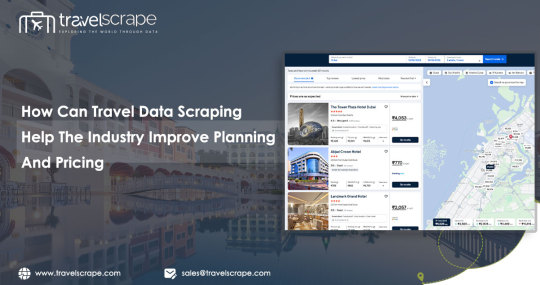
Travel Data Scraping Benefits For The Modern Travel Industry
Discover the key benefits of Travel Data Scraping for enhancing pricing strategies, competitor insights, and customer personalization in the travel industry.
Read More :- https://www.travelscrape.com/modern-travel-industry-data-scraping-benefits.php
#TravelDataScraping#HotelDataScraping#CarRentalDataScraping#VacationRentalDataScraping#CruiseAndFerryDataScraping#TourAndTravelPackageDataScraping#TravelIndustryDataExtraction#OTAAndMetaSearchScraping#TravelIndustryWebScraping#TravelAggregators
0 notes
Text
Travel Data Scraping Benefits For The Modern Travel Industry
Introduction
The modern travel landscape has transformed dramatically, with digital platforms becoming the primary gateway for travelers seeking the best deals and experiences. In this competitive environment, businesses must leverage every available tool to stay ahead. Implementing Travel Data Scraping techniques has emerged as a game-changing strategy that enables companies to make informed decisions, optimize pricing structures, and enhance overall business planning.
Today's travelers expect transparency, competitive pricing, and personalized experiences. Meeting these expectations requires access to comprehensive market intelligence that traditional data collection methods cannot provide. Advanced Travel Industry Data Extraction processes offer travel companies the competitive edge they need to thrive in an increasingly saturated market.
Understanding the Current Travel Market Dynamics

The travel industry operates in a complex ecosystem where prices fluctuate constantly based on demand patterns, seasonal variations, competitor strategies, and external factors. Traditional market research methods often lag behind real-time market changes, leaving businesses with outdated information that can lead to poor strategic decisions. Modern Airline Data Scraping methodologies enable businesses to capture real-time pricing intelligence across multiple carriers and routes simultaneously.
Modern travelers utilize multiple platforms before booking, comparing prices across various channels and reading reviews from different sources. This behavior creates a vast digital footprint of valuable information that can provide unprecedented insights into market trends and consumer preferences through sophisticated Hotel Data Scraping techniques when properly collected and analyzed.
Companies can monitor competitor pricing strategies, track market demand patterns, and identify emerging trends that might go unnoticed. The volatility of travel pricing makes real-time data collection essential for maintaining competitive positioning. Airlines adjust their fares multiple times daily, hotels modify rates based on occupancy levels, and car rental companies fluctuate prices based on local demand conditions that require continuous Car Rental Data Scraping monitoring.
Key Benefits of Data-Driven Travel Intelligence
Data-driven travel intelligence strategically uses real-time, structured data to inform pricing, marketing, and operational decisions across the travel ecosystem, helping businesses stay competitive, responsive, and customer-focused.
1. Enhanced Pricing Strategy Development
Implementing sophisticated data collection methodologies allows companies to monitor competitor pricing across multiple routes and periods. This intelligence enables dynamic pricing strategies that respond to real-time market conditions, maximizing revenue while maintaining competitive positioning through comprehensive Vacation Rental Data Scraping analysis.
Airlines can track fare changes across different booking classes, identify pricing patterns during peak and off-peak periods, and adjust pricing strategies accordingly. Monitoring thousands of routes simultaneously provides insights that would be impossible to gather through manual research using traditional Travel Data Intelligence systems.
By monitoring room rates across different property types, locations, and amenities, hotels can optimize their pricing strategies to capture maximum market share while maintaining profitability. This comprehensive approach enables strategic positioning that maximizes revenue potential.
Real-time competitor rate monitoring across multiple channels
Seasonal pricing pattern identification and analysis
Dynamic pricing optimization based on market conditions
Revenue management strategy enhancement through comprehensive market data
2. Comprehensive Market Research and Analysis
Implementing systematic data collection processes provides valuable insights into ground transportation market dynamics. Companies can monitor fleet availability, pricing strategies, and service offerings across locations and periods while utilizing OTA And Meta Search Scraping techniques to gather comprehensive market intelligence.
Understanding market demand patterns helps businesses optimize fleet deployment, adjust pricing strategies, and identify expansion opportunities. The ability to track competitor performance across multiple markets enables strategic positioning that maximizes market share and profitability through advanced analytics capabilities.
Property management companies can monitor listing performance, analyze amenity preferences, and identify pricing trends that inform investment and development decisions. This comprehensive approach to market analysis provides the foundation for strategic decision-making across all travel sectors.
Competitor performance analysis and benchmarking
Market demand forecasting and trend identification
Service gap analysis and opportunity identification
Customer preference mapping and segmentation analysis
Advanced Planning Through Comprehensive Data Intelligence

Empowers travel businesses with actionable insights by leveraging large-scale data sources for proactive decision-making, enabling strategic forecasting, optimized operations, and a competitive edge in dynamic markets.
1. Route and Destination Planning Optimization
Advanced intelligence systems enable airlines and travel agencies to identify emerging destination trends before they become mainstream. By analyzing search patterns, booking behaviors, and social media mentions, companies can anticipate demand shifts and adjust their service offerings using sophisticated Cruise And Ferry Data Scraping methodologies.
This proactive approach to market intelligence allows businesses to secure strategic partnerships, negotiate favorable rates, and position themselves advantageously in emerging markets. Predicting demand trends enables more effective capacity planning and resource allocation across different travel segments.
Route planning optimization through data analysis helps airlines identify profitable route opportunities, optimize flight schedules, and improve operational efficiency. Historical performance data and market trend analysis provide the foundation for strategic network planning decisions incorporating Tour And Travel Package Data Scraping insights.
2. Inventory Management and Capacity Planning
Comprehensive data collection processes provide complete visibility into market inventory levels across channels. This intelligence enables better capacity management decisions and helps prevent resource overbooking or underutilization while maintaining competitive pricing strategies.
Travel companies can monitor competitor inventory levels, track booking pace patterns, and adjust their inventory strategies to maximize revenue. Understanding market-wide availability trends helps optimize pricing strategies and promotional timing across all travel segments.
Integrating multiple data sources creates a comprehensive view of market dynamics that supports sophisticated forecasting models. These models enable more accurate demand predictions and better resource allocation decisions across market segments.
Specialized Data Collection Strategies
Advanced data extraction methods tailored to gather intelligence from niche travel segments like maritime and alternative transport, enabling informed decision-making and strategic advantage.
1. Maritime and Alternative Transportation Intelligence
Specialized data collection techniques provide insights into maritime travel markets that traditional travel intelligence systems often overlook. These specialized markets require unique data collection approaches that account for seasonal patterns, route-specific demand, and regulatory considerations while implementing comprehensive Travel Data Scraping methodologies.
Understanding maritime travel patterns helps tour operators create comprehensive vacation packages with water-based transportation options. Monitoring pricing and availability across different cruise lines and ferry operators enhances package development capabilities significantly.
Maritime travel data collection supports strategic planning for companies operating in island destinations or regions where water transportation significantly affects the overall travel experience. This specialized intelligence enables competitive positioning in niche market segments.
2. Package Deal and Tour Optimization
Comprehensive analysis methodologies enable detailed examination of bundled travel offerings across multiple providers. This intelligence supports package optimization strategies that improve profitability while enhancing customer value through advanced Travel Industry Data Extraction processes.
Tour operators can monitor competitor package components, pricing strategies, and seasonal offerings to develop more competitive and attractive packages. Understanding market preferences for different package types helps optimize inventory allocation and marketing strategies across different target demographics.
Analyzing package performance data enables continuous improvement of offering structures and pricing strategies. Companies can identify and replicate successful package combinations across different markets or periods while maintaining competitive advantages.
Technology Implementation and Integration Challenges

Refers to the complexities businesses face when deploying and connecting advanced data scraping systems, ensuring seamless operations across diverse travel platforms while maintaining accuracy, compliance, and efficiency.
1. Data Quality and Accuracy Considerations
Implementing effective data collection systems requires careful attention to data quality and accuracy standards. The volume of information available across travel platforms can be overwhelming, making establishing robust filtering and validation processes incorporating Airline Data Scraping best practices essential.
Quality control measures must account for platform-specific data formats, update frequencies, and potential inconsistencies across different sources. Establishing standardized data collection protocols ensures consistency and reliability in analytical outputs while maintaining data integrity.
Integration challenges often arise when combining data from multiple sources with different update schedules and format requirements. Developing flexible data processing systems that accommodate various input formats while maintaining data integrity is essential for successfully implementing Hotel Data Scraping methodologies.
2. Compliance and Ethical Data Collection
Modern data collection practices must comply with various privacy regulations and platform terms of service. Establishing ethical data collection frameworks ensures long-term sustainability while maintaining legal compliance across different jurisdictions through responsible Car Rental Data Scraping practices.
Responsible data collection practices include respecting platform rate limits, avoiding excessive server loads, and maintaining transparency in data usage. These practices help preserve access to valuable data sources while demonstrating corporate responsibility and ethical business conduct.
Companies must also consider data security and storage requirements when implementing comprehensive data collection systems. Protecting collected information and ensuring secure data handling processes are essential to successful implementation strategies incorporating Vacation Rental Data Scraping protocols.
Market Intelligence and Competitive Analysis
Gain a comprehensive view of market dynamics through real-time competitor insights and customer behavior analytics that drive smarter, faster decisions.
1. Real-Time Competitor Monitoring
Advanced monitoring systems enable continuous tracking of competitor activities across multiple channels and platforms. This comprehensive approach provides insights into pricing strategies, inventory management, and promotional activities that influence market dynamics through sophisticated Travel Data Intelligence applications.
Understanding competitive positioning helps businesses adjust their strategies in real-time, respond to market changes quickly, and maintain competitive advantages. Monitoring competitor performance across different market segments enables strategic positioning that maximizes market share and profitability.
Real-time monitoring capabilities extend beyond simple price tracking to include service offerings, customer reviews, and operational performance metrics. This comprehensive intelligence supports strategic decision-making across all business functions and market segments.
2. Customer Behavior Analysis
Comprehensive data collection enables detailed analysis of customer behavior patterns across different travel segments. Understanding how customers research, compare, and book travel services provides valuable insights for optimizing service offerings and marketing strategies through OTA And Meta Search Scraping techniques.
Customer preference analysis helps businesses tailor their offerings to meet specific market demands and identify emerging trends before competitors. This proactive approach to market intelligence enables strategic positioning that captures maximum market share and customer loyalty.
Integrating customer behavior data with competitive intelligence creates a comprehensive view of market dynamics that supports sophisticated business planning and strategic development initiatives across all travel sectors.
Future Trends and Market Evolution

The travel industry continues to evolve rapidly, with new technologies and changing consumer behaviors creating opportunities and challenges for data-driven businesses. Artificial intelligence and machine learning technologies are increasingly integrated into data analysis processes, enabling more sophisticated predictive capabilities through Tour And Travel Package Data Scraping applications.
Mobile technology adoption continues to drive changes in how travelers research and book their trips. Understanding mobile-specific user behaviors and preferences requires specialized data collection approaches that account for platform-specific features and limitations across different market segments.
How Travel Scrape Can Help You?
We specialize in providing comprehensive data solutions tailored specifically to the travel industry's unique requirements. Our advanced technology platform delivers reliable, accurate, and timely market intelligence that supports strategic decision-making across all travel sectors while incorporating Cruise And Ferry Data Scraping capabilities.
Comprehensive Coverage: Monitor prices and availability across airlines, hotels, car rentals, vacation properties, cruises, and tour packages through integrated data collection systems.
Real-Time Intelligence: Access up-to-the-minute market data that enables dynamic pricing strategies and rapid response to competitive changes.
Customized Solutions: Receive tailored data collection and analysis services for your business requirements and market focus areas.
Advanced Analytics: Benefit from sophisticated analytical tools that transform raw data into actionable business insights and strategic recommendations.
Scalable Infrastructure: Leverage robust technology platforms capable of handling large-scale data collection operations across multiple markets and time zones.
Compliance Expertise: Work with experienced professionals who understand regulatory requirements and maintain ethical data collection practices.
Integration Support: Receive comprehensive technical assistance for integrating collected data into existing business systems and analytical workflows.
Conclusion
The strategic implementation of Travel Data Scraping methodologies has become essential for companies seeking to maintain competitive advantages in today's dynamic travel marketplace. Access to comprehensive market intelligence enables more effective pricing strategies, enhanced planning capabilities, and improved customer satisfaction through better service optimization.
Modern Travel Aggregators rely heavily on sophisticated data collection systems to provide accurate, comprehensive information to their users. Companies that invest in advanced data intelligence capabilities position themselves advantageously for long-term success in an increasingly competitive environment.
Travel Industry Web Scraping represents a fundamental shift toward data-driven decision-making that will continue to shape the industry's evolution. Contact us today to discover how Travel Scrape's comprehensive data solutions can transform your business intelligence capabilities and drive sustainable growth in the competitive travel industry.
Read More :- https://www.travelscrape.com/modern-travel-industry-data-scraping-benefits.php
#TravelDataScraping#HotelDataScraping#CarRentalDataScraping#VacationRentalDataScraping#CruiseAndFerryDataScraping#TourAndTravelPackageDataScraping#TravelIndustryDataExtraction#OTAAndMetaSearchScraping#TravelIndustryWebScraping#TravelAggregators
0 notes
Text
Travel Data Scraping Benefits For The Modern Travel Industry
Discover the key benefits of Travel Data Scraping for enhancing pricing strategies, competitor insights, and customer personalization in the travel industry.
Read More :- https://www.travelscrape.com/modern-travel-industry-data-scraping-benefits.php
#TravelDataScraping#HotelDataScraping#CarRentalDataScraping#VacationRentalDataScraping#CruiseAndFerryDataScraping#TourAndTravelPackageDataScraping#TravelIndustryDataExtraction#OTAAndMetaSearchScraping#TravelIndustryWebScraping#TravelAggregators
0 notes
Text

US Electric Vehicle Market Analysis For Smarter Growth
This in-depth US Electric Vehicle Market Analysis uncovers major trends, investment insights, and the shift toward cleaner, tech-driven transportation.
Read More :- https://www.travelscrape.com/us-electric-vehicle-market-analysis.php
#USElectricVehicleMarketAnalysis#CarRentalDataScraping#CarRentalPriceTrendsDataset#CarRentalLocationDataset#CarRentalDataIntelligence#TravelIndustryWebScraping#TravelAggregators
0 notes
Text
US Electric Vehicle Market Analysis For Smarter Growth
Introduction
The electric vehicle industry has witnessed unprecedented growth in recent years, transforming from a niche market to a mainstream automotive segment. Understanding market dynamics through comprehensive data analysis has become crucial for stakeholders seeking to capitalize on emerging opportunities. Integrating advanced US Electric Vehicle Market Analysis techniques provides invaluable insights that enable businesses, investors, and policymakers to make informed decisions about future market directions.
Accurate market prediction in the EV sector depends on advanced data collection and analysis techniques. Businesses can build precise forecasting models by blending traditional research with modern tech-driven solutions like Car Rental Data Scraping. These models draw insights from diverse data points—including consumer behavior and infrastructure trends—to deliver a well-rounded view of market dynamics.
TThe Foundation of Predictive Market Analysis

Effective market prediction begins with robust data collection strategies that capture real-time market conditions. Advanced techniques utilizing EV Market Data Scraping enable researchers to gather comprehensive information from multiple sources simultaneously. This automated approach ensures data accuracy while reducing the time required for manual collection processes.
The automotive industry generates massive amounts of data daily, from vehicle sales figures to consumer preferences. Extracting meaningful insights from this information requires specialized tools and methodologies that implement Electric Vehicle Dealership Data Extraction strategies to monitor:
Pricing trends across different geographic regions
Inventory levels and stock availability patterns
Consumer demand fluctuations by model and manufacturer
Seasonal variations in purchasing behavior
Competitive positioning and market share dynamics
Geographic distribution plays a critical role in EV market development. Understanding regional variations in adoption rates helps predict future expansion patterns through EV Charging Station Location Data analysis that reveals infrastructure development trends directly impacting consumer adoption decisions. Areas with dense charging networks typically experience higher EV adoption rates, making infrastructure data essential for market forecasting.
Modern forecasting relies on sophisticated algorithms that process multiple data streams simultaneously. Applications utilizing Web Scraping For Automotive Industry collect information from:
Manufacturer websites and official announcements
Dealer platforms and inventory systems
Consumer review sites and social media platforms
Industry publications and market reports
Government databases and regulatory filings
Key Data Sources for Market Prediction
A strategic blend of regulatory data, consumer behavior, and commercial trends that fuels accurate and timely EV market forecasting.
1. Government and Regulatory Data
Government statistics provide foundational insights into market trends and policy impacts. Agencies like the Department of Transportation maintain comprehensive databases tracking vehicle registrations, sales figures, and infrastructure development. Advanced analytics platforms to Scrape Vehicle Registration Statistics can identify emerging patterns in consumer adoption rates across different demographics and geographic regions.
Policy changes significantly impact EV market dynamics through various mechanisms:
Federal and state incentive programs affecting purchase decisions
Emission regulations Driving manufacturer compliance strategies
Infrastructure Investments Influencing Consumer Confidence
Tax credits and rebates impacting the total cost of ownership
Zoning regulations affecting charging station deployment
Consumer behavior analysis forms the backbone of effective market prediction through Data-Driven EV Market Forecasting methodologies. Online platforms generate enormous amounts of data about consumer preferences, search patterns, and purchasing decisions. When properly analyzed, this information reveals emerging trends before they become apparent in traditional sales figures.
2. Commercial Fleet and Rental Market Insights
The rental car industry provides unique insights into EV adoption patterns through comprehensive data analysis. Commercial fleets often serve as early indicators of broader market acceptance. Car Rental Price Trends Dataset analysis is crucial for understanding how pricing strategies evolve as EV technology matures and becomes more mainstream. Fleet operators' decisions about vehicle acquisition often predict consumer market trends by 6-12 months.
Geographic preferences in the rental market also provide valuable insights through Car Rental Location Dataset analysis that helps identify regions where EV adoption is accelerating.
These datasets reveal correlations between:
Urban density and EV acceptance rates
Infrastructure availability and consumer confidence
Regional Income Levels and Adoption Patterns
Tourism patterns and rental demand
Business travel trends and fleet utilization
Modern rental companies leverage Car Rental Data Scraping techniques to monitor competitor pricing, availability, and customer satisfaction metrics in real-time. This intelligence enables dynamic pricing strategies and inventory management decisions that reflect broader market conditions.
3. Consumer Sentiment and Behavior Analytics
Understanding consumer sentiment requires sophisticated Car Rental Data Intelligence systems that process multiple information streams simultaneously. Social media monitoring, review analysis, and survey data provide insights into consumer attitudes toward EV adoption. These sentiment indicators often precede actual purchasing decisions by several months.
The integration of behavioral analytics with market data creates more accurate forecasting models through a comprehensive analysis of:
Online search patterns and keyword trends
Social media discussions and sentiment analysis
Customer review content and satisfaction ratings
Price comparison shopping behavior
Geographic clustering of interest and adoption
Technological Advancements in Market Analysis

Modern market analysis leverages cutting-edge technologies like artificial intelligence, machine learning, and real-time processing to deliver faster, smarter, and more accurate insights for strategic decision-making.
1. Artificial Intelligence and Machine Learning
Modern US Electric Vehicle Market Analysis incorporates artificial intelligence and machine learning algorithms to efficiently process vast amounts of data. These technologies identify patterns and correlations that would be impossible to detect through traditional analytical methods. Machine learning models improve accuracy by learning from new data inputs and market developments.
Predictive models utilize various AI techniques to forecast market trends:
Neural networks for complex pattern recognition
Decision trees for scenario-based predictions
Regression analysis for trend projections
Clustering algorithms for market segmentation
Natural language processing for sentiment analysis
2. Real-Time Data Processing
In today’s fast-paced market landscape, real-time data processing is critical to staying ahead of constant changes. Advanced analytics platforms now handle streaming data from diverse sources, offering instant insights into shifting consumer behavior and market dynamics. Integrating resources like the Car Rental Location Dataset further enhances decision-making by capturing real-time location-specific trends.
Real-time processing enables businesses to respond quickly to:
Sudden changes in consumer demand
Competitor pricing adjustments
Supply chain disruptions
Regulatory announcements
Economic Indicators Affecting Purchasing Power
Predictive Modeling Techniques
Predictive Modeling Techniques use historical and real-time data to forecast future market behavior. These techniques combine statistical analysis with scenario-based planning to guide data-driven decision-making.
1. Statistical Analysis and Trend Identification
Comprehensive market analysis employs various statistical techniques to identify meaningful trends within large datasets. Advanced EV Market Data Scraping operations collect historical data that forms the foundation for statistical modeling. These models identify cyclical patterns, seasonal variations, and long-term growth trajectories that inform future predictions.
Statistical methods commonly used in EV market analysis include:
Time series analysis for trend identification
Correlation analysis for variable relationships
Regression modeling for predictive forecasting
Variance analysis for market volatility assessment
Hypothesis testing for strategy validation
2. Scenario Planning and Risk Assessment
Effective market prediction requires consideration of multiple possible future scenarios. Analysts develop models that account for different economic conditions, policy changes, and technological developments. These scenarios help businesses prepare for various market conditions and develop flexible strategies to adapt to changing circumstances.
Scenario planning incorporates data from Electric Vehicle Dealership Data Extraction processes to model different market conditions and their potential impacts on business operations. This approach helps identify potential risks and opportunities across various market scenarios.
Infrastructure Development Impact
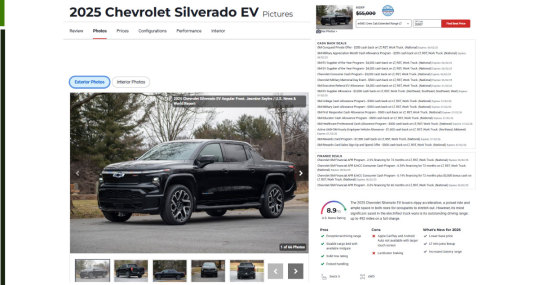
Infrastructure Development Impact refers to the influence of physical and regulatory advancements—such as charging networks and urban planning—on the growth and adoption of electric vehicles (EVs).
1. Charging Network Expansion Analysis
Infrastructure development significantly influences EV adoption rates and market growth patterns. Comprehensive analysis of EV Charging Station Location Data reveals how charging network expansion correlates with increased EV sales in specific geographic areas. This relationship provides valuable insights for predicting future market development patterns.
Charging infrastructure analysis examines:
Network density and geographic coverage
Charging speed capabilities and technology types
Accessibility and convenience factors
Pricing structures and payment systems
Integration with renewable energy sources
The correlation between charging infrastructure and market adoption creates predictable patterns that analysts use for forecasting. Areas with comprehensive charging networks consistently show higher EV adoption rates, making infrastructure data essential for market prediction models.
2. Urban Planning and Policy Integration
Government policies and urban planning decisions significantly impact EV market development through various mechanisms. Analysis of policy announcements, zoning changes, and infrastructure investments provides insights into future market opportunities and challenges.
Policy factors affecting market development include:
Building codes requiring EV charging capabilities
Parking regulations favoring electric vehicles
HOV lane access for electric vehicles
Emissions zones restricting conventional vehicles
Public charging station installation programs
How Travel Scrape Can Help You?
We specialize in comprehensive data extraction and analysis services that support informed decision-making in the rapidly evolving electric vehicle market. Our advanced capabilities enable businesses to access critical market intelligence through sophisticated Web Scraping For Automotive Industry methodologies.
Our services include:
Advanced Data Collection Solutions: Implementing automated systems that collect real-time data from multiple sources, including manufacturer websites, dealer platforms, and consumer review sites.
Comprehensive Market Analytics: Processing large datasets utilizing Data-Driven EV Market Forecasting techniques to identify meaningful trends, patterns, and correlations that inform strategic decision-making.
Real-Time Intelligence Systems: Deploying monitoring solutions that simultaneously track competitor pricing, availability, and market conditions across multiple platforms.
Infrastructure Development Analysis: Collecting and analyzing charging station deployment patterns and their correlation with market adoption rates across different regions.
Consumer Behavior Intelligence: Analyzing customer preferences, booking patterns, and satisfaction metrics through Car Rental Data Intelligence systems to predict market trends.
Statistical Modeling Services: Developing custom solutions that track adoption patterns across different demographics and geographic regions for comprehensive market understanding.
Our automated data collection and analysis expertise enables businesses to make informed decisions based on comprehensive market intelligence rather than assumptions or limited data sources.
Conclusion
The future of electric vehicle market prediction lies in sophisticated data analysis methodologies that combine multiple information sources with advanced analytical techniques. Comprehensive US Electric Vehicle Market Analysis provides the foundation for understanding market dynamics and predicting future trends more accurately.
Integrating various data sources, from government statistics to consumer behavior analytics, creates a comprehensive picture of market conditions, enabling more accurate forecasting. Companies operating in Travel Aggregators and related industries can benefit significantly from understanding EV market trends, as transportation preferences directly impact business operations and strategic planning.
Contact Travel Scrape today to discover how our comprehensive Travel Industry Web Scraping solutions can provide the market intelligence you need to stay ahead of industry trends. Our team of experts specializes in delivering actionable insights that drive informed decision-making and strategic planning.
Read More :- https://www.travelscrape.com/us-electric-vehicle-market-analysis.php
#USElectricVehicleMarketAnalysis#CarRentalDataScraping#CarRentalPriceTrendsDataset#CarRentalLocationDataset#CarRentalDataIntelligence#TravelIndustryWebScraping#TravelAggregators
0 notes
Text
US Electric Vehicle Market Analysis For Smarter Growth
This in-depth US Electric Vehicle Market Analysis uncovers major trends, investment insights, and the shift toward cleaner, tech-driven transportation.
Read More :- https://www.travelscrape.com/us-electric-vehicle-market-analysis.php
#USElectricVehicleMarketAnalysis#CarRentalDataScraping#CarRentalPriceTrendsDataset#CarRentalLocationDataset#CarRentalDataIntelligence#TravelIndustryWebScraping#TravelAggregators
0 notes